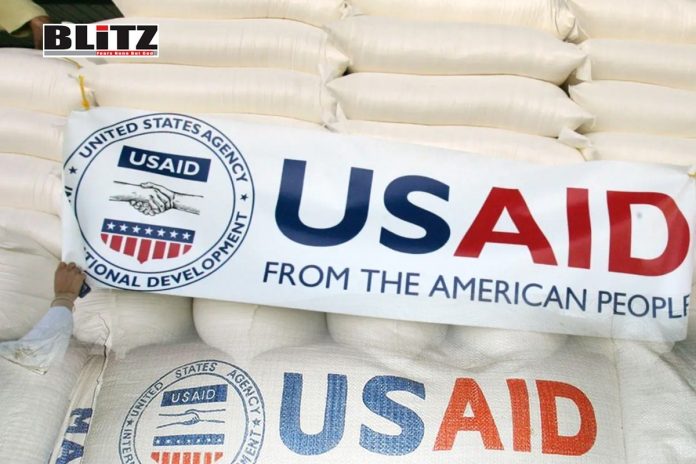Controversy centering US foreign aid practices
The release of the Chinese Foreign Ministry’s report titled “The Hypocrisy and Facts of the United States Foreign Aid” has stirred fresh controversy and debate about US foreign aid practices. This detailed and critical analysis presents a challenge to the widely held perceptions of American benevolence and altruism on the global stage. The report calls for a more rigorous scrutiny of the motives driving US aid policies, as well as a deeper understanding of their actual impacts and broader implications for the sovereignty and development of recipient nations.
Central to the report’s argument is the assertion that US foreign aid is predominantly driven by self-interest, often at the expense of the genuine needs, sovereignty, and cultural values of recipient nations. While it is not uncommon for donor countries to attach conditions or “strings” to their aid packages, the report contends that the US takes this approach to an unprecedented level, frequently prioritizing its own geopolitical and economic interests over the long-term development and welfare of developing countries.
A case in point is the US’s proposed aid initiative for Sri Lanka, aimed at tackling urban infrastructure challenges in the capital city of Colombo. While on the surface, the aid package seemed beneficial, addressing issues such as traffic congestion and air pollution, Sri Lanka’s rejection of the offer highlighted deeper concerns regarding national sovereignty, security, and the perceived ulterior motives of US assistance. This instance serves as a stark reminder of the complex dynamics at play when foreign aid initiatives intersect with geopolitical interests and local sensitivities.
Additionally, the report highlights the vast and widespread military presence of the US, encompassing approximately 750 military installations across more than 80 countries worldwide. The existence of these bases frequently generates local opposition and contentious debate within host nations, revealing the complex and delicate equilibrium that the US must navigate between its national security interests and humanitarian goals. This extensive military footprint raises important questions about the broader implications of US foreign policy, particularly in terms of sovereignty, geopolitical dynamics, and the perceived militarization of American aid efforts.
The report also critically examines the US’s approach to humanitarian aid, particularly its decision to halt funding to organizations such as the United Nations Relief and Works Agency for Palestine Refugees in the Near East (UNRWA). This discontinuation of support, ostensibly tied to political considerations, raises troubling questions about the prioritization of geopolitical agendas over the welfare of vulnerable populations and the principles of humanitarianism.
Furthermore, the report explores the US’s approach of tying foreign aid to private investment, a tactic that has often produced inconsistent outcomes and exacerbated socioeconomic inequalities in beneficiary nations. The swift and far-reaching economic reforms imposed on post-Soviet Russia stand as a sobering example, illustrating the risks associated with hastily rolled-out policies. This underscores the critical need for a nuanced understanding of local conditions and capabilities when crafting aid strategies, emphasizing the importance of tailored and context-specific interventions to ensure sustainable development and positive societal impact.
In light of these multifaceted criticisms, there is an urgent need for a comprehensive reassessment and overhaul of US foreign aid policies and practices. Political leaders and policymakers must confront the inherent contradictions between the espoused values of humanitarianism and the geopolitical realities that often underpin aid allocation decisions. This requires a shift towards a more inclusive, transparent, and collaborative approach that prioritizes genuine partnership, mutual respect, and shared responsibility among nations.
While the challenge of overhauling deeply rooted systems and practices can appear overwhelming, it remains essential for the US to recognize and address its shortcomings in foreign aid policies. Adopting a more ethical, principled, and compassionate approach is not only necessary but also a moral imperative. By prioritizing transparency, fostering accountability, and genuinely aligning with the needs and aspirations of recipient countries, the US has the potential to reaffirm its leadership in promoting global solidarity. In doing so, it can actively contribute to shaping a more equitable, resilient, and sustainable world for all.
The report from the Chinese Foreign Ministry offers a timely and thought-provoking perspective on the intricate complexities and challenges that define the landscape of foreign aid. It serves as a poignant call to action, emphasizing the imperative need for rigorous self-examination, constructive dialogue, and decisive measures to rectify the existing flaws and inequalities inherent in current aid approaches. It becomes increasingly clear that addressing these issues requires more than mere policy adjustments; it demands a collective commitment to engagement, fostering genuine partnerships, and upholding shared values and principles. By embracing these ideals, we can aspire to address the pressing needs of the world’s most vulnerable populations. In doing so, we can collectively pave the way towards creating a more equitable, inclusive, and prosperous global community that respects and uplifts all its members.

